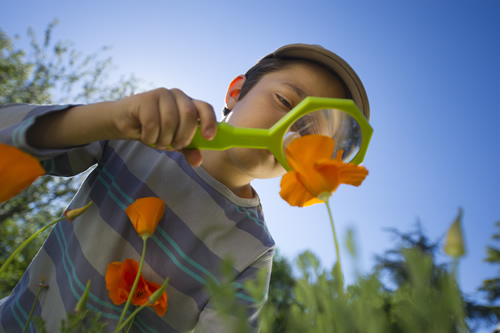The weather breaks. The sun is shining. Nature is in full bloom. Imagine a group of students gathering outside in a large grassy area. Their teacher is giving directions and assigning students to teams. In a virtual setting, the teacher makes a video explaining the task and students walk into their own backyards to execute the lesson on their own. We can all benefit from the environmental learning opportunities right outside our door.
Planting flowers, bug hunting, and weather watching are all activities that can be done using social distancing guidelines and are acceptable during quarantine. For parents of young students, going outside during the COVID-19 pandemic has been a blessing.
Related content: Using summer to help teachers prepare for fall
As we navigate changes entering the new school year, we know project-based learning will be an essential aspect of every curriculum. Defined Learning aligns with standards and does project-based lesson planning for you, saving our teachers and parents time and effort.
Hands-on discovery
While we can no longer gather together to conduct formal experiments, we can still take advantage of the summer season and weave outdoor learning into everyday life.
Hands-on discovery of STEM content is a great way to engage all learners whether face-to-face or learning remotely. Here are five project-based lessons encouraging students to explore their own backyards.
1) Weather Wonders: What’s the weather where you are today? Students will enjoy observing, documenting, and reporting on the weather in their neighborhoods. Students can use math skills to graph the weather, digital animation tools to sketch the weather, or video tools to report on and record weather clips.
2) Rain, Rain, Go Away: Have students study properties of water, surface tension, or other H2O-related learning. Plan a unit around chromatography so students can explore color and light that come alive when the sun intersects with water after a spring rainstorm. With markers and coffee filters, learners can explore how colors can change and combine. When we choose simple materials, students can recreate the learning experience at home.
3) GaleForce Winds: Use a summer rainstorm to explore wind. Students can design and build kites or windmills or maybe even umbrellas. Once the designs are complete, students take them outside and try them out. Have them capture their flight on video and post it to your class website or learning management system to share with the class.
4) Watch it Grow: With the warmer weather, summer can be a time to dig into some gardening science. Mess with soil. Learn about seeds. Plant flowers or vegetables. You might even extend the planting project by having students design a way to protect plants from extreme weather, deter local pests from eating your crops, or test their creativity by asking them to become a florist to create a floral arrangement for an upcoming event. These STEM experiences can be done at home with the assistance of a parent or sibling.
5) Creepy Crawlers: Bees, beetles, ladybugs, and butterflies; encourage your students to learn about bugs. Whether observing these creepy crawlers in their natural habitats or doing online research, students can check out the insects that come out during nice weather.
Get inspired by the growth, discovery, and activity of the outdoors. Get out of the classroom and explore learning outdoors. Whether exploring STEM while investigating the weather or digging into the dirt, students can advance their learning while engaging in hands-on discovery both in and out of the classroom.
- 4 ways to encourage play in education - April 25, 2024
- CoSN IT Leader Spotlight: Lisa Higgins - April 25, 2024
- It’s time to pay student teachers - April 25, 2024

